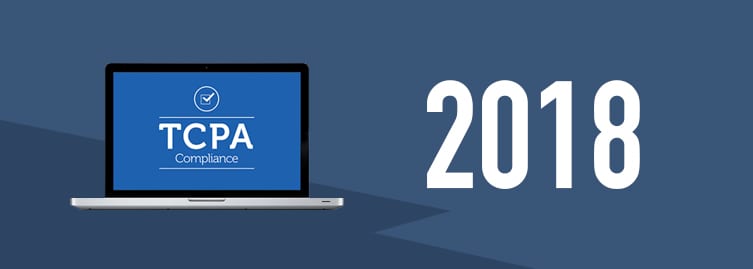TCN Webinar Recap: How to Respond to TCPA Compliance in 2018
TCPA compliance isn’t a novel concern. What may be novel, though, are its impacts in 2018. The ACA’s appeal to the government, submitted in 2015, should be settled sometime this year. In addition, new leadership heads the Federal Communications Commission (FCC), and it could bring changes to how businesses and call centers operate in the future.
TCN’s Darrin Bird discusses those effects in a joint webinar with legal experts from the law firm of Hogan Lovells. They first walk through what TCPA compliance looks like today and what it could look like tomorrow. They then talk about different tools businesses can use to lessen compliance risk.
TCPA Compliance is a C-Suite Issue
TCPA compliance worries business executives precisely because TCPA compliance is a C-Suite issue. Noncompliance results in customer complaints and, occasionally, bad press. This means departments other than customer service are involved in compliance issues. Marketing, sales, and public relations get pulled into them, too.
But noncompliance often results in more than negative perceptions and news stories. It also produces an increasing number of class-action lawsuits, with many of them featuring high-dollar payouts. That money, of course, demands the input of the company’s financial executives. They must not only pay the settlement but also recast the business’ financial plan and forecast.
TCPA Compliance Governs Many Moving Parts
Those negative outcomes cause many businesses to question whether they are compliant with current regulations and guidelines. The uncertainty might seem odd, but it occurs with good reason. TCPA compliance, after all, entails more than the obvious telemarketing calls. It also spans appointment follow-ups, political surveys, automobile maintenance reminders, and customer service.
Yet all of these communications can be thought of in terms of who, what, and how.
• Who. Is the contact B2B or B2C? Are they using a landline or wireless connection?
• What. Is the communication for marketing, or is it informational?
• How. What communication medium is being used? Does technology play a role in the communication? Is the message prerecorded?
The TCPA administrates all three elements with its rules about consent, technology, et cetera. However, the TCPA isn’t the only regulation affecting compliance. HIPAA laws, state ordinances, wireless regulations, and other measures also impact call center compliance efforts.
TCPA Compliance Is Simpler with Cutting-Edge Tech
The TCPA’s breadth and far-reaching effects tends to cause a certain amount of paralyzing fear. But today’s business executives master the anxiety with best-in-class technology, tools, and processes.
• Technology. Leading call center platforms rely on a cloud-based infrastructure, which enables simpler scalability and powerful flexibility.
• Tools. The best tools cover all the bases: inbound, outbound, blended and tools for enhancing compliance efforts. They also allow other communication methods, such as email and text messages—all while enhancing TCPA compliance.
• Processes. Companies concerned about compliance don’t view the issue as only a technology matter. They consider it a technology + people matter. They understand that a tool or technology is only as good as the agent who wields it.
Best-in-class businesses also augment their call center operations with business intelligence (BI). Such technology delivers visibility into agent and call center performance, often in real time. Business executives then take that intelligence, apply it to their communication efforts, and improve customer satisfaction and TCPA compliance.
